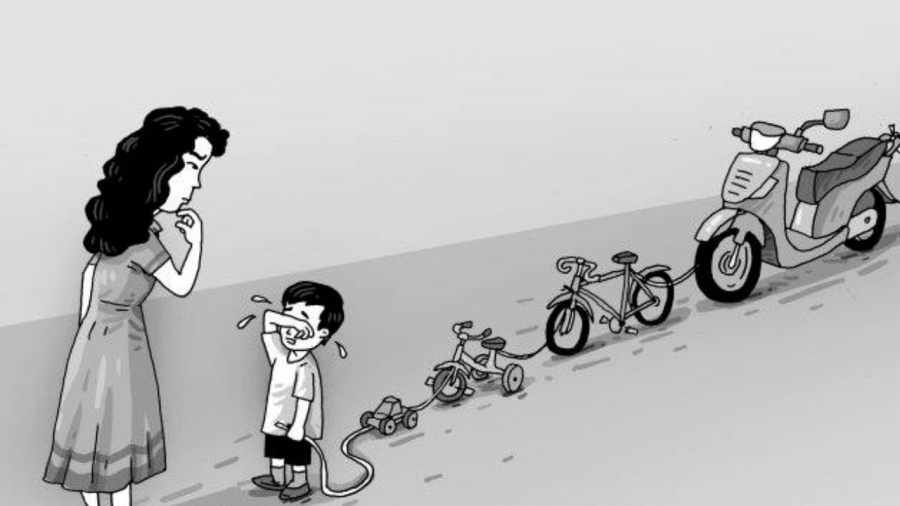No parent wants their child to be spoiled, yet many do not realize that their own habits are spoiling their children.
Doing all the household chores for the child
Many parents believe that as long as their child is academically successful, they don’t need to do any physical work. This approach does not benefit the child. Learning academic subjects and practical skills provide different values and are equally beneficial. Through daily chores, children learn various things and become more self-sufficient, observant, and agile. Chores are not a burden but an opportunity for development. By doing everything for the child, they will become like factory chickens, only knowing book knowledge and lacking self-care skills and a work ethic.

Coming home and immediately using the phone
Parents may dislike their child’s phone addiction, yet they reserve the privilege to hold their phones all day long. When they come home, they lie down or sit on the sofa and immediately start using their phones. They even use their phones while feeding or bathing their child. This behavior disconnects the child from the parents and increases their desire to use the phone, imitating their parents. Instead of lecturing theoretically, it is better to lead by example. If the father changes his behavior by staying away from the phone whenever he comes home, it won’t be surprising if the child develops self-discipline and diligence. When parents are proactive, their children are generally not lazy. If the father is not proactive, it will be difficult to raise children with a sense of responsibility.
Providing too many choices for the child
Nobody wants their child to experience deprivation, but never go beyond their needs and give them just a little less. This way, children will value everything, not take things for granted, and appreciate them more.
Parents frequently complaining
Parents’ complaints make children feel tired, drained of energy, and lacking joy. Parents’ complaints about their own poverty and unhappiness make children feel self-blame. Optimistic and persistent parents motivate their children to move forward courageously.
Seeing the child’s mistakes but ignoring them
In many cases, when children make mistakes like being disrespectful to adults or hitting strangers, parents stay silent, smile, or think that children know nothing because they are young. The ancients said, teaching children from a young age is essential.
Parents should never encourage harmful behaviors like hitting their mother or slapping their father. Children should be taught to take responsibility from a young age. Instead of scolding and hitting, parents should explain to their children the reasons for their mistakes and teach them that admitting mistakes is not shameful, but a way to progress.

Parent not sharing household chores with the mother
In many families, the mother does all the laundry and drying, while the father lies on the sofa playing. The mother washes the vegetables and cooks, while the father sticks to his phone playing games and asks from time to time, “Is dinner ready?”. This has a negative impact on the child’s perception. They will perceive a family imbalance and repeat the same actions as their father, thinking that everything is the mother’s responsibility. Furthermore, this behavior also leads to the child replicating the same actions as their father.
Giving orders to the child without explaining
Young children are not born to obey orders. They need to understand the world, why they need to do things a certain way, and why it is necessary. Therefore, parents need to explain why things are done a certain way. Don’t forget about this need of the child just because you’re busy, or else you will have an authoritarian child who doesn’t know how to share.

Not keeping promises
When the adults make promises to their children, they must keep them. Breaking promises may seem normal, but they deeply affect the child’s consciousness. In such cases, parents cannot demand honesty and responsibility from their children.
Parents are a mirror reflecting their child’s life. Therefore, every habitual action of ours affects the future of our children.




































